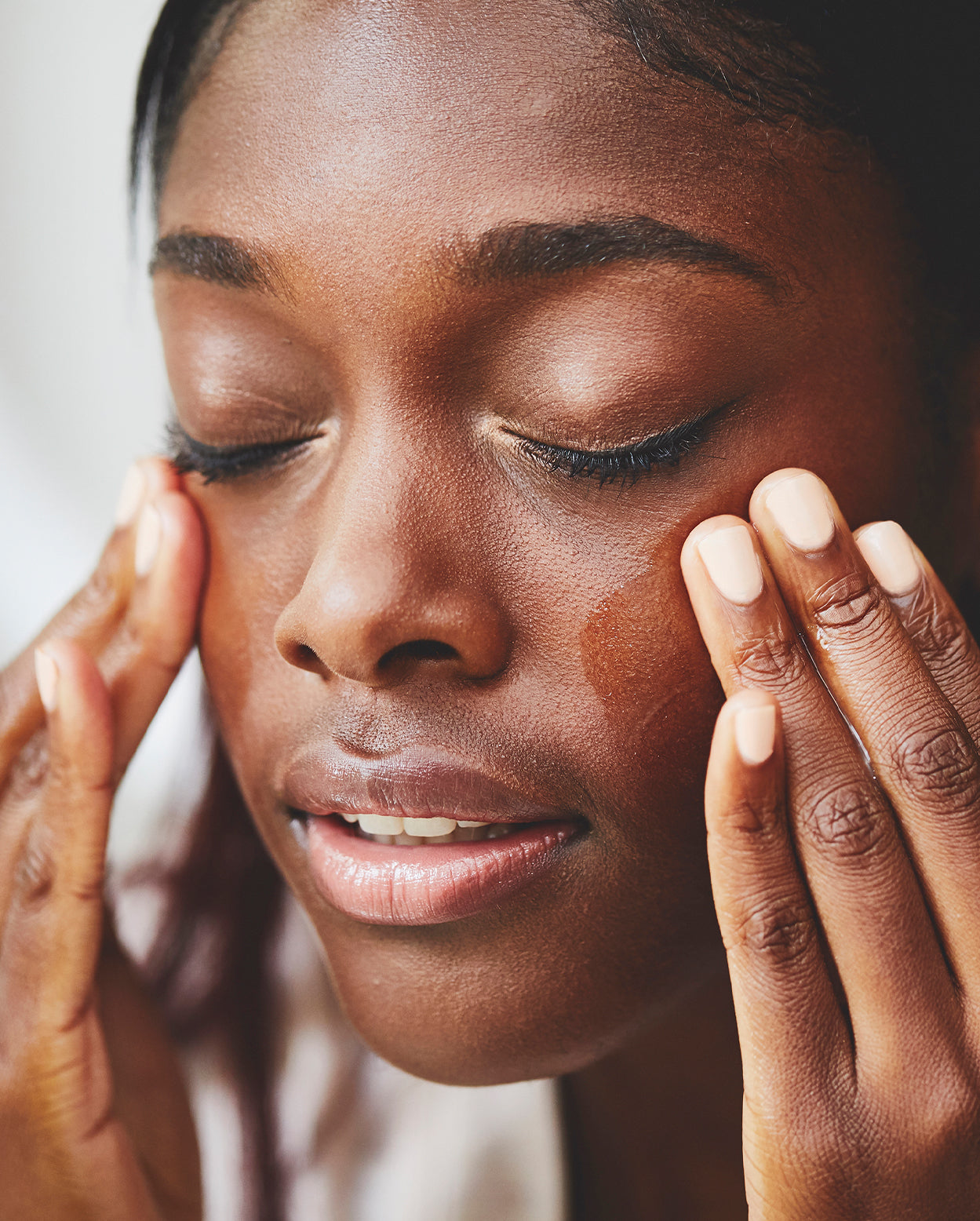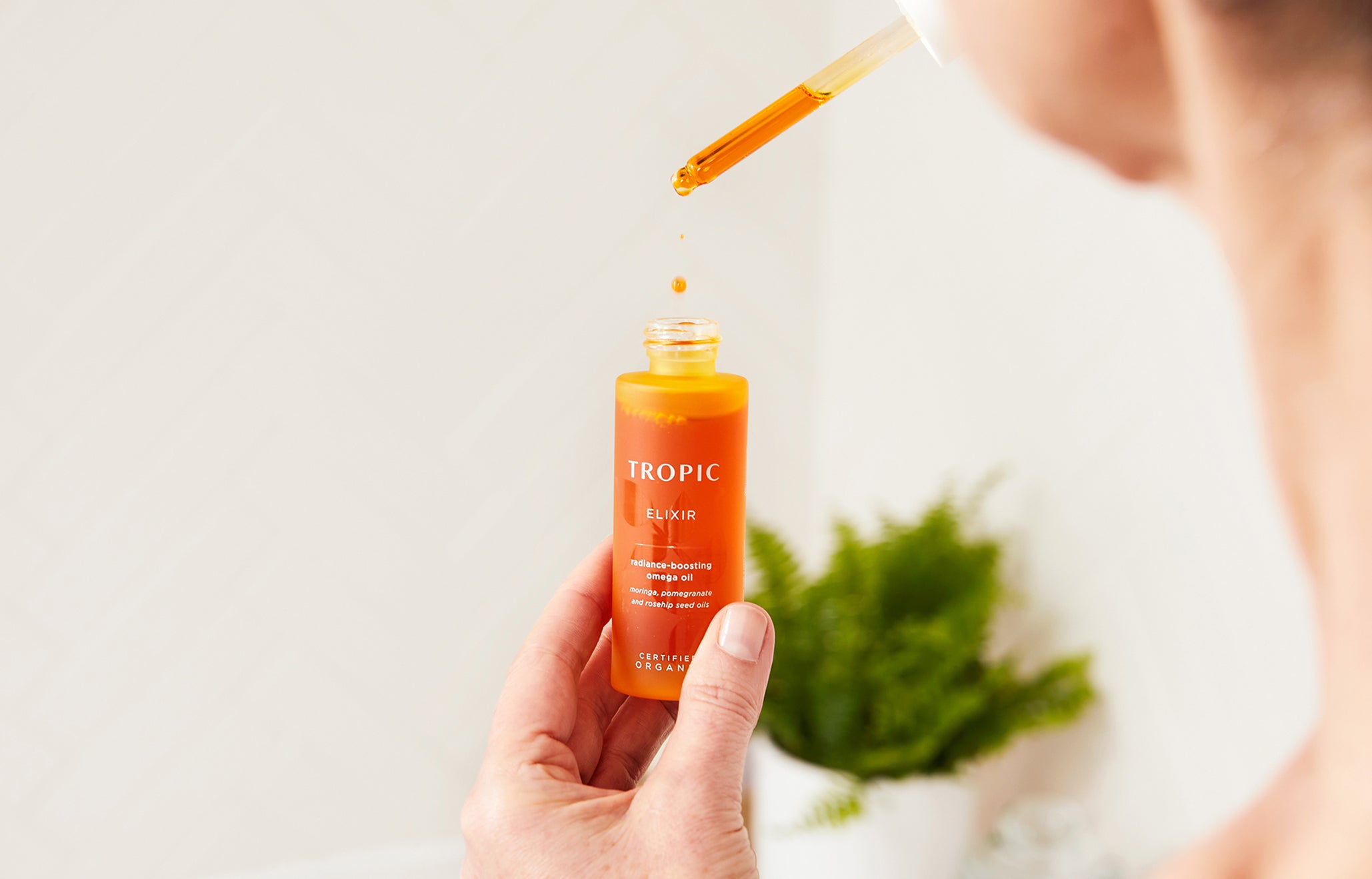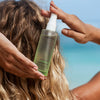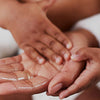Each of us has our own unique skin goals, the checkpoints on our ‘ultimate glow’ mood boards that we’re working towards. With such a diverse range of what we all want from our skin, no two people’s aims are necessarily going to be the same. We know that often deciding where to work backwards from when you’ve got the end of the journey in sight can be an overwhelming prospect. To help out, we thought we’d pull together some of the goals we hear most commonly from our Tropic community and guide you through those first steps on the journey to your dazzling destination. Welcome to Glow Academy...
Here to find out how to soothe and nourish your skin when experiencing redness and irritation? Let’s talk about Dryness! While this is also a skin type, it’s pretty common for anyone to be hit with a skinario where moisture suddenly seems like a long-forgotten dream.
So, what exactly is dryness?
The path to parched skin finds its origins squarely with a staple of skin’s natural defences, our moisture barrier. This layer of fats in the epidermis is constantly hard at work ensuring that moisture and natural oils (sebum) remain in their rightful place, nourishing our skin’s health and keeping our complexions on the plump, smooth side. When times of dryness hit, it’s your barrier that’s being thrown out of balance, meaning it’s much easier for moisture to be lost from our bodies. As a result, patches of irritation will start to flare up, feeling tight and rough and looking flaky.
Although we’re speaking to the experience of those who go through dryness from time to time, dry skin can also be a frequent symptom of conditions like eczema or psoriasis, so it’s important to consult with a doctor or dermatologist if you have any concerns over frequently occurring itchy, dry areas.
What can have an impact on dryness?

For those of us who aren’t immediately enthused by the prospect of pumpkin spice latte season, there’s yet another reason to begrudge the icy arrival of winter. Although the cosy warmth of central heating feels like a blessing on a blustery February night, it also removes the moisture from air and our skin at the same time. When we step through the front door, the outlook on dryness goes from nippy to frozen, as the cold, dry air and constant threat of rain can irritate and result in redness. Constantly moving between these environments of heat and chill also leaves skin in a state of confusion, which only impairs your moisture barrier further.
The thought of lighting the candles and relaxing into an indulgent bubble bath might not immediately seem like a cause of dryness – after all, you’re surrounded by water! Unfortunately, we can’t always count on H₂0 to be a mystical instant fix as when we’re experiencing dry skin, our natural oils are what really need topping up, not our water levels. Hopping in the tub for a hot soak results in those oils being lost from skin with the steam of your bath as it evaporates, ultimately exacerbating dryness. The same is true of those who like to stretch out their showers for as long as possible (no judgement, we’ve all been there, imaginary microphone and all) or even when washing up in very hot water. For the chore-averse who just breathed a sigh of relief, we’re sorry to say you can still use gloves!
With mature skin comes a rise in dryness, as a perfectly natural side effect of a few different factors. The older we get, the slower our cells get at renewal, the more sun damage we’re likely to have experienced, and the lower our levels of sebum production, and in women, the hormone changes of menopause can also induce a shift in moisture levels. Our barrier function is still in effect but all these elements do have an impact on its day-to-day workings, making dryness more of a likelihood.
How do I take care of dryness?
- We wouldn’t dream of telling you that baths are banned, but aim to make yours a weekly ten minutes of indulgence, making sure that the water temperature is hovering somewhere between ‘jacuzzi’ and ‘Bali beach’ instead of ‘Japanese steam room’. Keep up the moderate heat in your showers for the rest of the week, which you should try and limit to five minutes. Whether it’s a full-body soak or a power blast, always opt for the gentle pat-down method when you’re drying off afterwards, as aggressively rubbing with your towel only serves to scrub away moisture.
- While we’re on the subject of bathroom etiquette, it’s time to introduce natural moisturiser to the scene. A go-to whether you’re experiencing dryness or not, it’s not only your face that ought to feel its barrier-supporting benefits. Add a cream that’s formulated specifically for your body to your collection and apply it immediately after you’ve dried off from your shower or bath to quickly lock in moisture.
- On winter nights when you feel as though you may as well be at the North Pole, you shouldn’t have to give up that snug central heating, but to ensure it’s not stripping the moisture from the air around you entirely, add a humidifier into the mix to stop your immediate environment from becoming as dry as it is outside.
- Stop singing the praises of exfoliation? Never! Buff away flaky, dead skin cells twice a week to ensure you’re giving the fresh layers of smooth skin below a chance to shine and reap the benefits of the rest of your products. When you’re going through a dry skin stage, we’d recommend avoiding manual exfoilators like brushes, pumice stones or grainy scrubs, as ultimately they can cause inflammation at a time when your skin is already sensitive. Luckily, there are countless amazing chemical exfoliants to choose from that use gentle alpha-hydroxy, beta-hydroxy and poly-hydroxy acids (look out for them as AHAs, BHAs and PHAs on packs).
-
As we said, if dryness is on the cards, then your skin needs a little extra TLC and to be handled with delicacy. Be mindful during these periods of what ingredients you’re putting on your skin, avoiding products that contain potentially irritating alcohol, fragrances or stringents. If it’s a moment of pampering you’re after, stick to natural face masks that emphasise hydration and aren’t formulated with clay and charcoal, which can really dry skin out.
Which ingredients are good for dryness?

Look out for skincare which features...
Hyaluronic acid – It doesn’t get much more hydrating than this natural humectant, which essentially acts as a sponge, soaking up moisture from your environment to keep your skin plump.
Ceramides – Often to be found in natural serums and moisturisers, these natural fats are essentially the foundations that hold your skin’s moisture barrier in place and keep it strong.
Squalane – It’s an essential emollient that helps lock in hydration and drench dry patches for soft, supple and balanced results.
The dryness FAQ
Why is my skin dry after I’ve moisturised? There’s at least four different influences in the mix here, so we’ll go into each in a bit more detail;
- It could be the case that you’re simply not reaching for your moisturiser enough to see the best results. You should be making it a regular part of your morning and evening skincare routine to avoid dryness.
- If you’re leaving exfoliation off your weekly skincare menu, then your moisturiser is having to work much harder to get through the layers of dead skin cells and infuse the epidermis beneath with all the moisture it needs to stay healthy.
- Make sure you’re using the right kind of formulation! If you generally opt for a moisturiser that’s very light in consistency, you might have to switch things up to a richer option when dryness hits to offer more heavy-duty hydration.
- It’s essential that moisturiser thoroughly absorbs into skin, so take your time as you apply it, instead of just wiping it on like a cleanser that’s going to be immediately washed off. Add a bit of light pressure to skin by patting it in instead or gently massaging it in small circles.
What foods can affect dryness? Foods that dehydrate skin cells like high-salt snacks and alcohol are to be kept firmly in the no pile when you’re experiencing dry skin. On the flip side, you’re good to glow with cucumber, with its high vitamin C content, and avocado which is packed full of protein, vitamins and healthy fats. It might seem obvious also, but don’t forget to glug seven to eight glasses of water a day!

 Skincare
Skincare
 Sale
Sale
 Bestsellers
Bestsellers
 Makeup
Makeup
 Body Care
Body Care
 Men's
Men's
 Hair Care
Hair Care
 Mama & Baby
Mama & Baby












